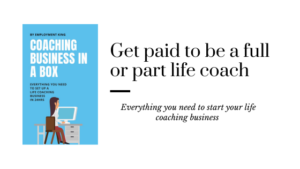Understand How Language Change Interview Stress Levels.
Job interviews are really stressful, but are more more stressful by the language the interviewee uses when trying to motivate themselves.
The actual words we use when talking to our-self has a massive impact on your emotional well being. Our internal dialog is created automatically, by taking control of your personal language, you create interview confidence, reducing job interview stress.
Here are 3 simple ways to reduce job interview stress by choosing stress reducing words
Set Up Your Own Coaching Business
Speaking in the Third Person
Stressed and anxious interviewees use associated language “I have to answer all the interview questions…” Is this is said from a negative perspective, the visual imagery you create from these words increases stress.
Self-distancing helps you to control your thoughts and emotional response. By using disassociated phrases the stress impact lowers “Chris has to answer all the interview questions..” you change your perspective, changing your response and behavior.
To lessen stress, think about the phrasing of yourself talk. Become aware of the “I” you are using, and repeat the same phrase replacing “I” with your name.
Strong and Weak Words
When preparing for the job interview it is easy to fall into the trap of using weak words that didn’t motivate.
Take these 2 examples;
- I’m going to try and pass the job interview
- I will pass the job interview
Words such as “try” “maybe” “want” don’t create the feeling of commitment. By replacing these weak words with commitment statements you are more likely to achieve your goals.
When feeling committed to a passing a job interview, your stress levels naturally drop as you have a positive focus which creates interview confidence.
Language and Perspective
Interviewees often focus on the negative reasons why they need to pass the job interview.
The way you phrase your reason for attending the job interview will create stress or desire.
Most people phrase their job interview goal in the negative stating the thing they want to get away from “I don’t want to be unemployed…”
What you say to yourself, your reason for the job interview, is represented by visual imagery. This image creates an emotional response, either positive or negative and only positive emotions help you to relax in the job interview, increasing confidence.
To increase job interview confidence, reframe your negatively phrased goal positively “I want to gain a job with a pay rise”






